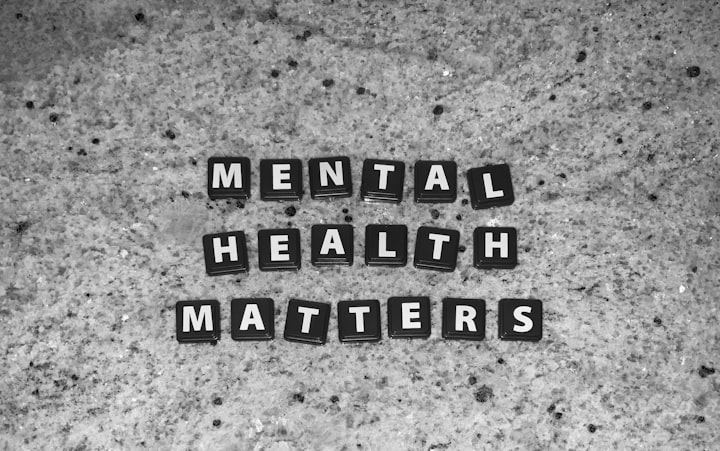25 Q&A On Overcoming Mental Health Challenges.
Secrets to thriving with mental health conditions.

1. What is mental health?
Mental health is a state of well-being in which every individual realizes his or her own potential, can cope with the normal stresses of life, can work productively and fruitfully, and is able to make a contribution to her or his community.
2. What are the different aspects of mental health?
Mental health includes our emotional, psychological, and social well-being. It affects how we think, feel, and act. It also helps determine how we handle stress, relate to others, and make choices.
3. What are the symptoms of mental illness?
Symptoms of mental illness vary from person to person and depend on the type of mental illness. They can include changes in mood, thoughts, or behavior; difficulty coping with stress, anxiety, or depression; and problems with relationships or work.
4. What are the causes of mental illness?
The causes of mental illness are not fully understood, but a combination of genetic, biological, environmental, and psychological factors is thought to play a role.
5. What is the treatment for mental illness?
The treatment for mental illness depends on the type of illness and its severity. It may include medication, therapy, or both.
6. How common are mental illnesses?
Mental illnesses are common. Approximately one in five Americans will experience a mental illness in any given year.
7. How do I know if I have a mental illness?
If you are experiencing symptoms that are causing you distress or interfering with your ability to function, you should consult a mental health professional.
8. Can mental illness be cured?
Mental illness can be treated and managed, but there is no cure.
9. What is the difference between mental health and mental illness?
Mental health is a state of well-being in which every individual realizes his or her own potential. Mental illness is a mental health condition that causes significant distress or impairment in functioning.
10. Are mental illnesses contagious?
Mental illnesses are not contagious.
11. Can mental illness be prevented?
Mental illness cannot be prevented, but early diagnosis and treatment can help reduce the severity of symptoms.
12. What is the prognosis for mental illness?
The prognosis for mental illness varies depending on the type and severity of the illness. With treatment, many people with mental illness experience a significant improvement in their symptoms and quality of life.
13. Can mental illness be inherited?
Mental illness is not inherited, but there is some evidence that certain genes may make a person more susceptible to developing a mental illness.
14. Are people with mental illness more likely to commit crimes?
People with mental illness are not more likely to commit crimes than the general population. In fact, people with mental illness are more likely to be the victims of crime than the perpetrators.
15. How do I get help for a loved one who is experiencing mental illness?
If you are concerned about the mental health of a loved one, you should consult a mental health professional. He or she can provide you with guidance and resources.
16. How can I support someone with a mental illness?
The best way to support someone with a mental illness is to provide love and understanding, and to encourage them to seek treatment. You can also offer to help them with everyday tasks, like grocery shopping or laundry, and attend therapy sessions with them.
17. How can I cope with my own mental illness?
If you are experiencing a mental illness, the best thing you can do is seek treatment. This may include medication, therapy, or both. You can also find support from friends and family, or from online communities of people with mental illness.
18. What should I do if I think someone is suicidal?
If you are concerned that someone is suicidal, you should talk to him or her about it and urge him or her to seek help from a mental health professional. You can also call a suicide hotline in your area.
19. What is the difference between suicide and suicide attempt?
Suicide is the act of taking one's own life. Suicide attempt is an act of self-harm that is not fatal.
20. What are the warning signs of suicide?
The warning signs of suicide can vary from person to person, but some common signs include talking about wanting to die or hurt oneself, expressing feelings of hopelessness, talking about being a burden to others, increasing alcohol or drug abuse, withdrawing from friends and activities, abnormal mood swings, and giving away prized possessions.
21. How can I get help for someone who is suicidal?
If you are concerned that someone is suicidal, you should talk to him or her about it and urge him or her to seek help from a mental health professional. You can also call a suicide hotline in your area.
22. What is the difference between suicide and homicide?
Suicide is the act of taking one's own life. Homicide is the act of killing another person.
23. What should I do if I think someone is planning to commit suicide?
If you are concerned that someone is planning to commit suicide, you should talk to him or her about it and urge him or her to seek help from a mental health professional. You can also call a suicide hotline in your area.
24. How can I get help for someone who has attempted suicide?
If someone has attempted suicide, you should urge him or her to seek help from a mental health professional. You can also call a suicide hotline in your area.
25. How can I support someone who is grieving after a suicide attempt?
If someone you know has attempted suicide, it is important to provide love and support. You can help them by attending therapy sessions with them, providing practical assistance, and listening to them patiently.
About the Creator
Alain Saamego
Software engineer , Writer and Content Strategist at Selfgrow.co.uk
I'm a technology enthusiast, and I love learning about upcoming technologies. I also enjoy teaching and answering questions about new technologies.






Comments
There are no comments for this story
Be the first to respond and start the conversation.